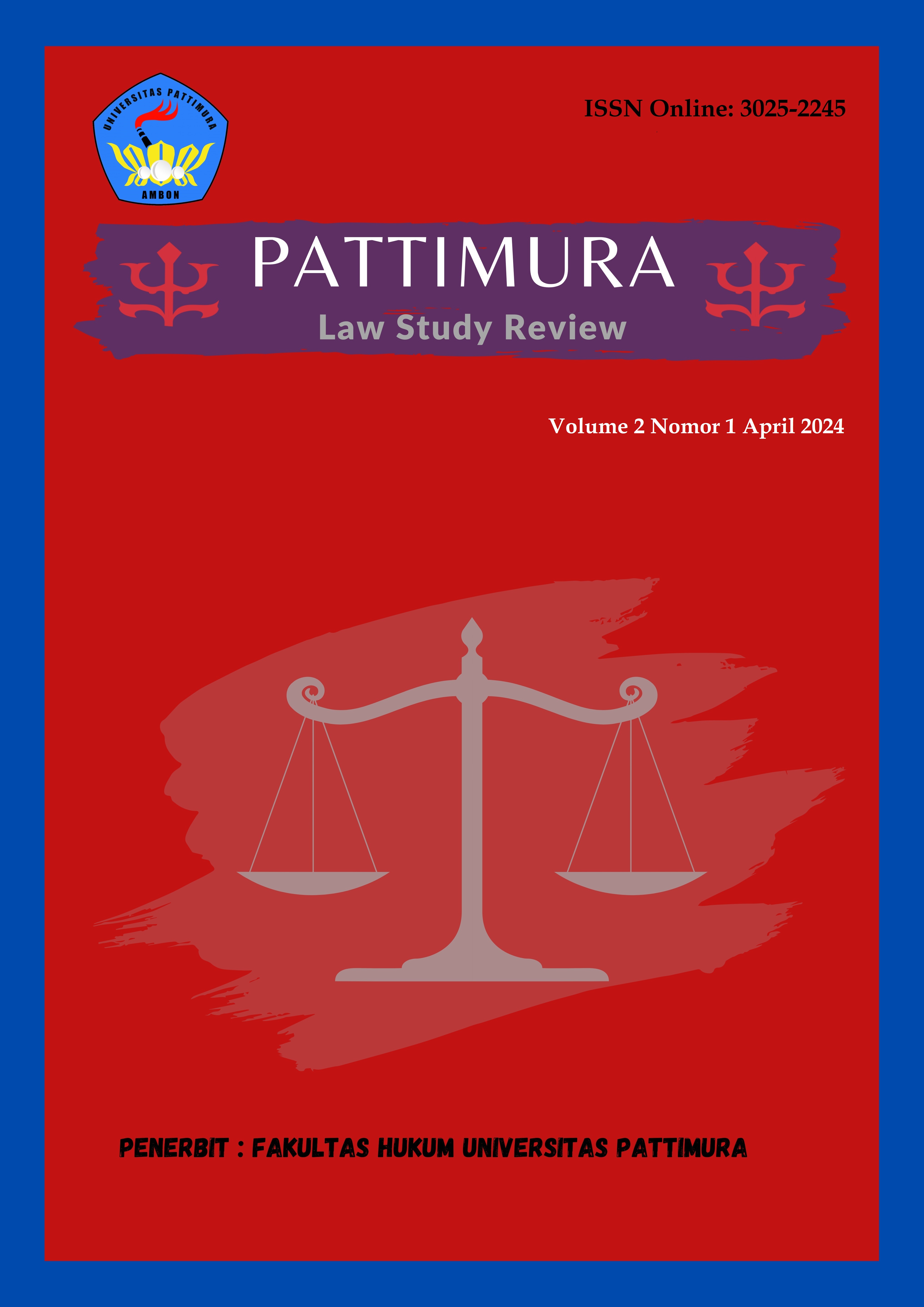Tinjauan Yuridis Pemberlakuan Pemberatan Pidana Terhadap Residivis Penyalahgunaan Narkotika
Abstract
ABSTRACT: There are serious concerns regarding drug abuse in Indonesia, which has spread to various levels of society. This phenomenon has also become a global concern due to its detrimental impact. Law No. 35/2009 on Narcotics is the legal basis that regulates supervision, control, and sanctions against perpetrators of narcotics abuse. However, there are cases of drug abuse recidivists, such as the case of Dedi Ismail Yusuf Manilet, which shows a discrepancy between law enforcement and existing regulations. Dedi, who is a recidivist offender of narcotics abuse in a period of less than three years, in the second verdict did not receive criminal aggravation in accordance with applicable regulations. The purpose of this research is to analyze and examine the mechanism of punishment against perpetrators of narcotics abuse based on Law Number 35 of 2009 concerning Narcotics and the reasons why the judge did not impose criminal aggravation on the defendant in court decision No. 145/PidSus/2022/PNAmb. The research method, the author uses normative juridical research based on the main legal material by examining the theories and laws and regulations related to this research. The results of this research can be concluded that the mechanism of punishment against perpetrators of narcotics abuse based on Law Number 35 of 2009 concerning Narcotics can be imprisoned for a maximum of 4 years depending on the class of narcotics and can be rehabilitated under certain conditions. The reason why the judge did not aggravate the punishment against the defendant in court decision number 145/Pid.Sus/2022/PN.Amb is that there were defects in the procedure for imposing criminal sanctions against the perpetrator starting from the police, the prosecutor's office who did not charge the perpetrator with criminal aggravation, then in the end the judge in deciding the case was in line with the prosecutor's demands and charges and in his decision the judge did not pay attention to the fact that the defendant was a recidivist and did not pay attention to the defendant's statement that he had used methamphetamine and marijuana which the defendant stated during the trial.
Downloads
References
Chairul Huda,. 2017. Pola Pemberatan Pidana dalam Hukum Pidana Khusus, Jurnal Hukum, No. 4. Vol. 18.
Syarifuddin Usman, Muhammad Zikru,. 2017. Pemberatan Hukuman Terhadap Residivis dalam KUHP Ditinjau Menurut Hukum Islam, Jurnal Hukum Islamic Crimial Law, No. 1. Vol. 6
Buku
Masriani, (2014), Pengantar Hukum Indonesia, PT. Sinar Grafika, Jakart.
Suyanto H, (2018), Pengantar Hukum Pidana, PT. Deepublish, Yogyakarta.
Soerjono Soekanto, (2010), Penelitian Yuridis Normatif, PT. Rajawali Perrs, Jakart.
Taufik Iqbal, (2023), Equality Before The Law Dalam Penegakan Hukum Tindak Pidana narkotika di Indonesia, Tanesa, Samarinda.
Online/ Online/World Wide Web, Dan Lain-Lain
Humas BNN, (2020, Februari 25). Sifat Jahat Narkoba. September 4, 2023. https://bandungkota.bnn.go.id/mengenal-dunia-narkoba/ diakses 12 Februari 2024, 13.30 WIT
Humas Badan Narkotika Narkotika, (2020), Penggolongan Narkoba, Cirebon, https://cirebonkota.bnn.go.id/penggolongan-narkoba/ diakses 13 Februari 2024, 9.19 WIT
Copyright (c) 2024 Aghniya Erlita Ramadhanti, Hadibah Zachra Wadjo, Iqbal Taufik (Author)

This work is licensed under a Creative Commons Attribution-NonCommercial 4.0 International License.
Authors who publish their manuscripts in this Journal agree to the following conditions:
- The copyright in each article belongs to the author, as well as the right to patent.
- Authors are able to enter into separate, additional contractual arrangements for the non-exclusive distribution of the journal's published version of the work (e.g., post it to an institutional repository or publish it in a book), with an acknowledgment of its initial publication in this journal.
- Authors are permitted and encouraged to post their work online (e.g., in institutional repositories or on their website) prior to and during the submission process, as it can lead to productive exchanges, as well as earlier and greater citation of published work.
- Authors have the right to self-archiving of the article (Author Self-Archiving Policy)













